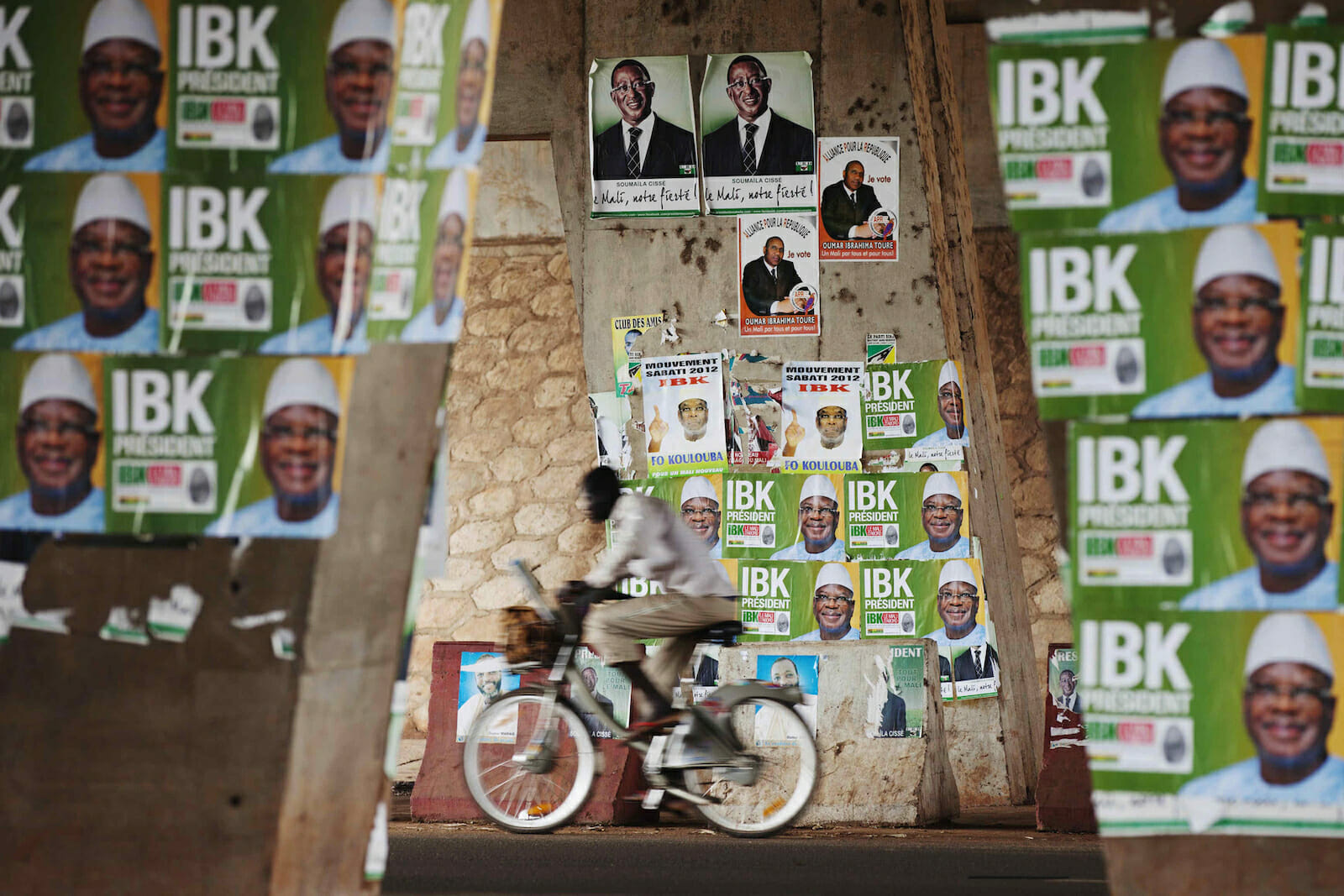
Mali’s Elections Need to be Inclusive
By U.S. standards there are few free, fair and transparent elections that take place in Africa. Cries of foul play or a boycott by candidates should not mar the election process. If every time there is a request to postpone an election very few would be held. The first round of Mali’s presidential election is scheduled for July 28, with a second round run-off on August 11 if no candidate garners more than 50 percent of the vote. The campaign officially kicked off on July 7 with a field of 28 candidates, reaching out to voters across the country.
Tiébilé Dramé a former foreign minister has already withdrawn. He petitioned Mali’s Constitutional Court to postpone the elections claiming everyone would not be able to participate in the voting process–fairness for the elections was not in place–since the deeply divided country was not ready to run a credible election. He further noted the election law had been violated because no voter lists were available in the northern town of Kidal by the June 25 deadline.
In January French-led military forces liberated several northern Mali towns held by Islamist extremists, including Kidal which was the stronghold for the National Movement for the Liberation of Azawad (MNLA). The MNLA had refused access to the Malian military and government leaders, which became a stumbling block that affected thousands of potential voters.
Mr. Drame had been the chief negotiator for the Malian government in reaching the June 18 Peace Accord with the MNLA, allowing for access to Kidal. However, skirmishes between Malian soldiers and the Tuareg separatists continue. There is a growing concern that the unrest might interfere with the July elections.
Mr. Drame is also upset with French Foreign Minister Laurent Fabius, believing he has become “the director of elections in Mali”—by pressing government leaders to follow through with the scheduled election. The French had long stated they wanted to withdraw their troops but agreed to stay until after the election. A force of 1,000 soldiers will remain at year-end, along with 12,000 UN Peacekeepers. Trained and newly equipped Malian soldiers will help provide a secure environment for the new government. There will still be concerns that the Islamist insurgents could return.
There are obstacles to overcome for a successful election including the distribution of voter identification cards. There is also concern that the rainy season could make roads impassable. Ramadan has begun which some fear could affect voter turnout. And the Malian diaspora–thousands living in refugee camps in neighboring countries–needs to be included.
The Tuareg and Arab population in the thirteen provincial areas surrounding Kidal need to partake in the election process, even though there is still resentment towards the Malian government.
Mr. Drame wanted the elections postponed to assure a higher voter turnout for the legitimacy of the newly elected president. Historically voter turnout in Mali has been about 40 percent. It is important that the election unifies Mali–bringing together the diverse ethnic factions–even if the voter turnout is less.
Marissa Samake sent me the latest polls by Jeune Afrique, which show her husband in third place. She noted: “The campaign is going well and we are spreading our reach into the different villages in Mali. There is a strong chance we will go into the second round.” The polls indicate there are five leaders, three being former ministers–part of the old guard–with Mr. Thiam and Mr. Samake being new faces. The polls show Ibrahim Boubacar Keita with 23%, Racine Seydou Thiam with 20%, Yeah Samake with 18%, Soumaila Cisse with 14 %, and Soumana Sacko with 10%. The other candidates lag behind with 1% to 5% each–which includes Mr. Drame.
Mr. Samake noted several weeks ago that the ethnic tensions had subsided, and there was adequate security in place for campaigning around the country. He believes the turnout on election day will be representative of all civil society.
The Peace Accord signed in June has eased ethnic tensions in the country. Now Mali needs a fresh start, with a leader who can unify the country. Especially since the MNLA separatists are distrustful of the present government. A conciliatory leader can make a difference, by bringing all Malians together under the same tent.

